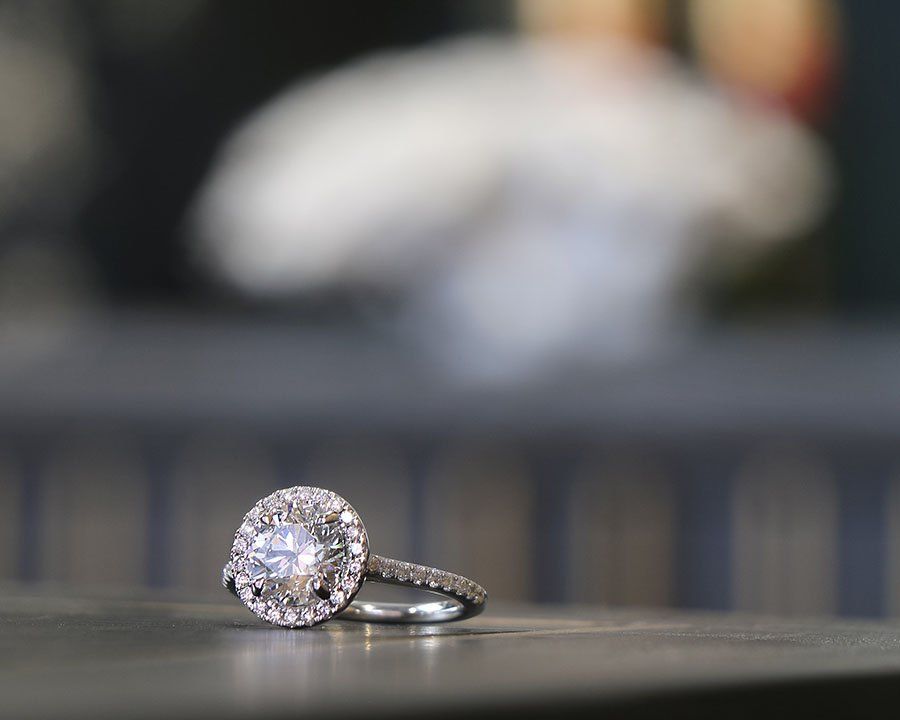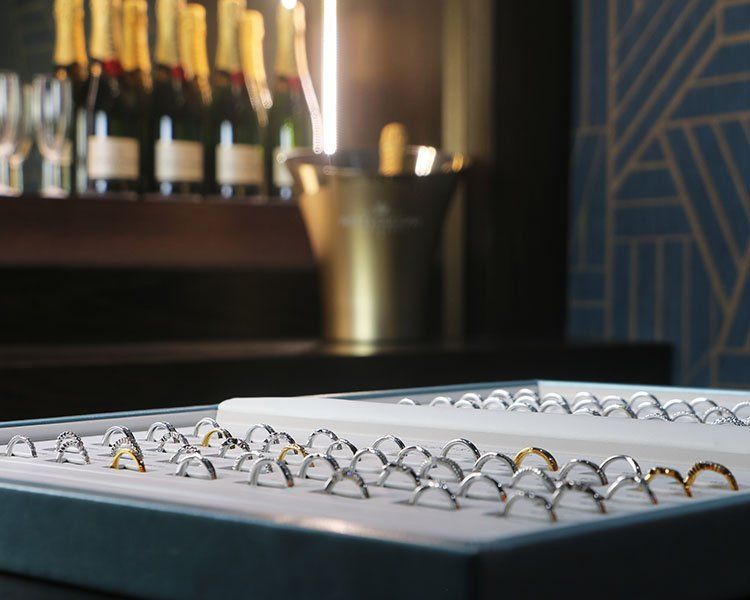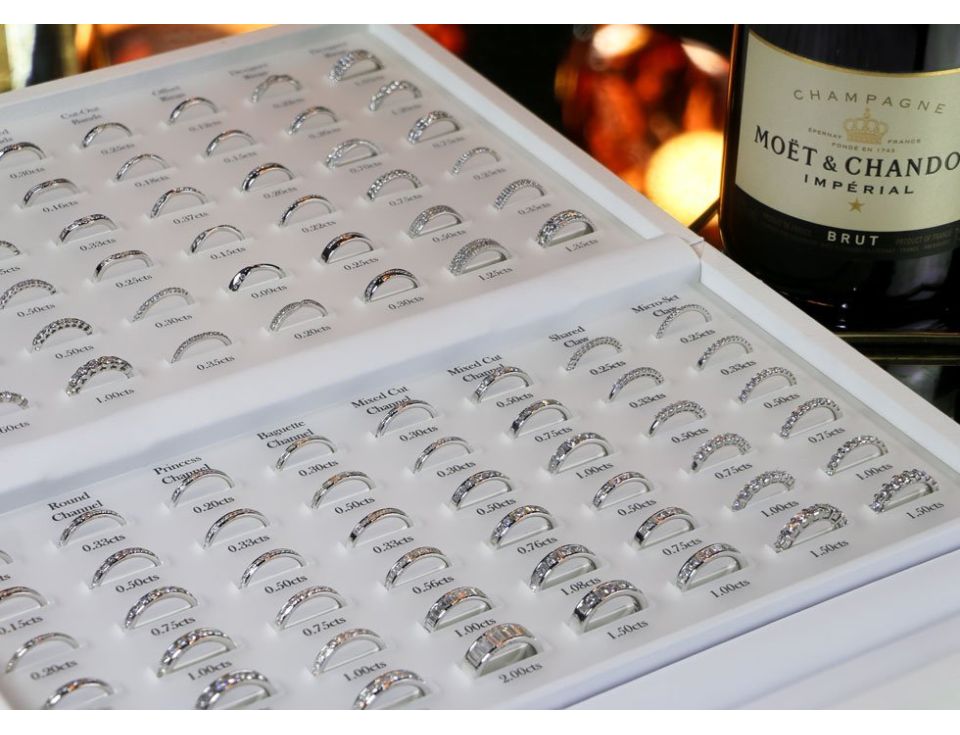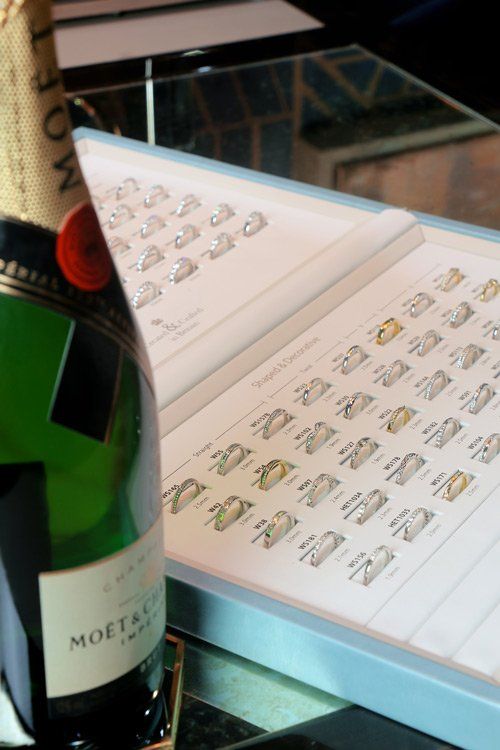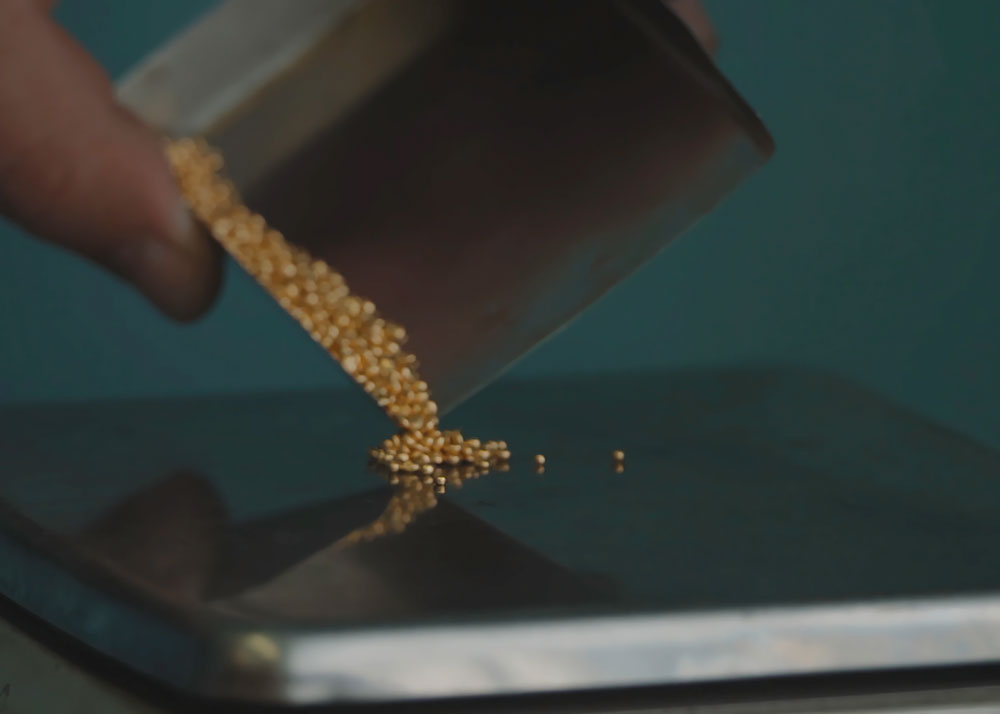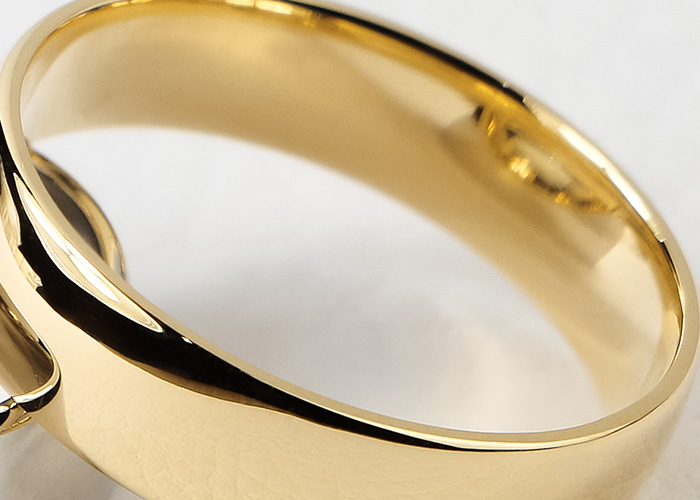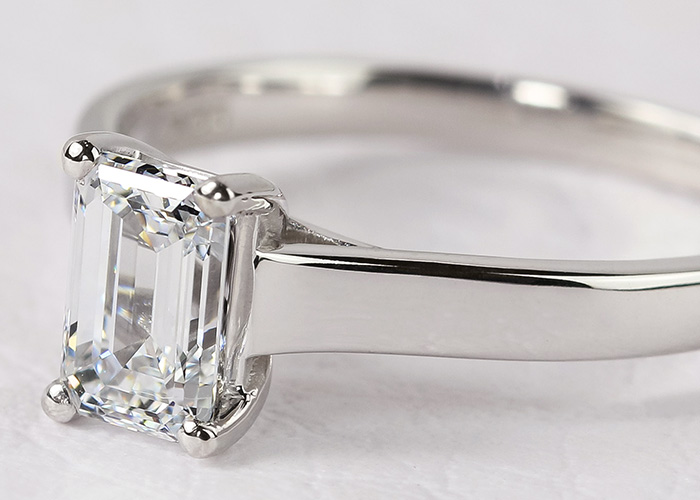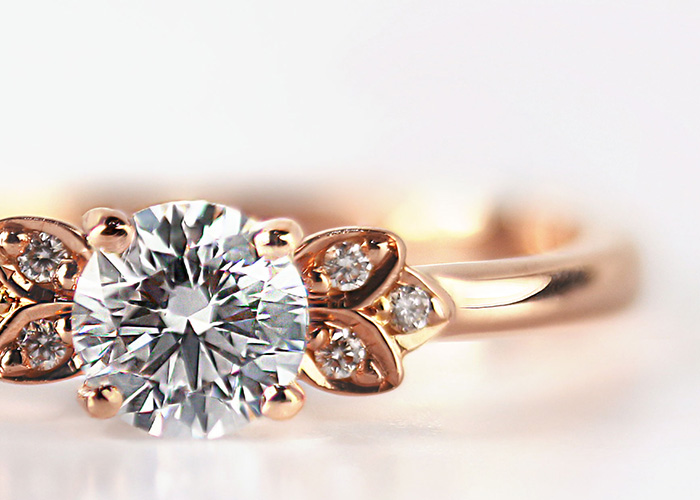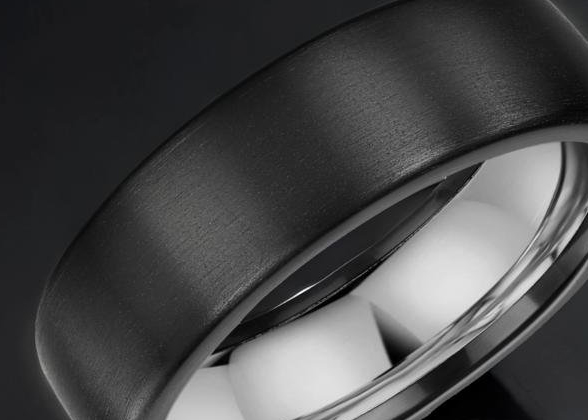Platinum 950
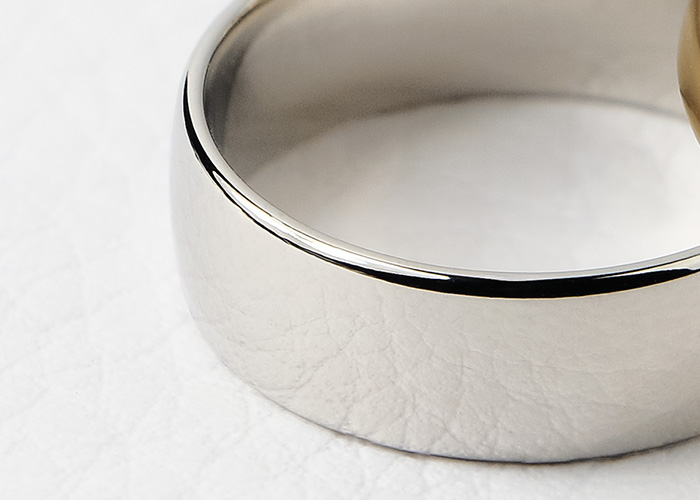
Platinum got its name from the Spanish word "platina," which means "little silver." This term was used by Spanish explorers and conquistadors in the 16th century when they encountered the metal in present-day Colombia. The diminutive form "platina" reflects the explorers' initial perception of the metal as an inferior or less valuable form of silver... how wrong they were:
It wasn't until Antonio de Ulloa, a Spanish scientist and naval officer brought attention to platinum in Europe after his expeditions to South America in the early 18th century. In his reports published in 1748, he described this new metal as resisting melting and having distinct properties compared to other known metals.
Despite its initial undervaluation, Platinum's properties including its resistance to tarnish and corrosion, exceptional strength, and brilliant lustre, along with it's rarity made Platinum highly desirable leading to its esteemed status. During the late 19th and early 20th centuries, platinum became synonymous with luxury and sophistication, particularly in the Edwardian and Art Deco periods. Jewellers favoured it for its ability to hold intricate settings and securely display precious gemstones, especially diamonds. Platinum's rarity and durability continue to make it a premier choice for high-end jewellery, including engagement rings and wedding bands. Its enduring appeal lies in its elegant appearance, hypoallergenic nature, and the prestige associated with its exclusivity.
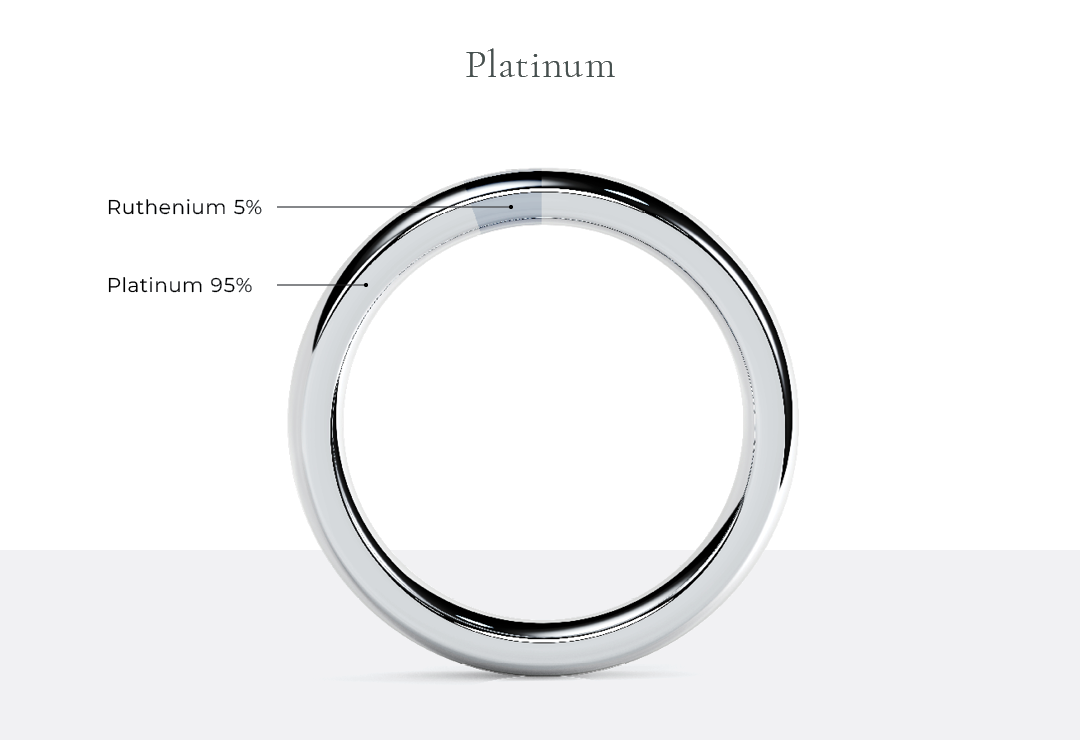
Platinum 950 alloy
How much does a platinum ring cost?
Is platinum like white gold?
Why choose a platinum ring?
| Pros | Cons | |
| Exceptional durability making it ideal for everyday wear | Platinum is denser and therefore heavier than gold. | |
| Platinum rings maintain their bright luxurious appearance over time without the need for re-plating. | It only comes in one colour | |
| Platinum is typically 95% pure | ||
| The bright white sheen offers a prefect setting to really show diamonds |
Is platinum Hallmarked?
Can A Platinum Ring Scratch and Scuff
Yes, platinum rings can scratch and scuff, though they handle wear differently than many other metals. Platinum sits around 4 to 4.5 on the Mohs scale of hardness, which measures a material’s resistance to scratching. This means platinum is not considered a "hard" metal—it can be scratched by any material that’s harder than it, such as steel or other metals higher on the scale. For reference, a diamond ranks at 10 on the Mohs scale (the hardest naturally occurring material), while a fingernail is around 2.5.
However, despite its relative softness, platinum’s density and malleability make it exceptionally durable and ideal for long-term wear. Here’s what you can expect in practice:
- Scratch Resistance: Platinum is highly dense and durable, which makes it resistant to deeper scratches, but it can still develop fine scratches and scuffs over time. These surface scratches are often shallower than those on other metals.
- Patina Development: Unlike gold, which loses a bit of metal when it’s scratched, platinum simply displaces. Over time, this can lead to a "patina" effect, a soft, slightly matte look that many people love for its character and vintage feel. It can make the ring look more unique and, to some, even more beautiful.
- Polishing and Maintenance: If you prefer a high-polish finish, platinum can be polished back to its original shine by a jeweler. This process will smooth out any scratches and restore the ring’s reflective finish, but it’s generally only needed once every couple of years if you want to maintain a fresh look.
Overall, platinum’s strength and unique aging process make it an excellent choice for long-term wear. If you’re comfortable with its patina or don’t mind occasional polishing, platinum’s durability and timeless beauty make it a great investment.
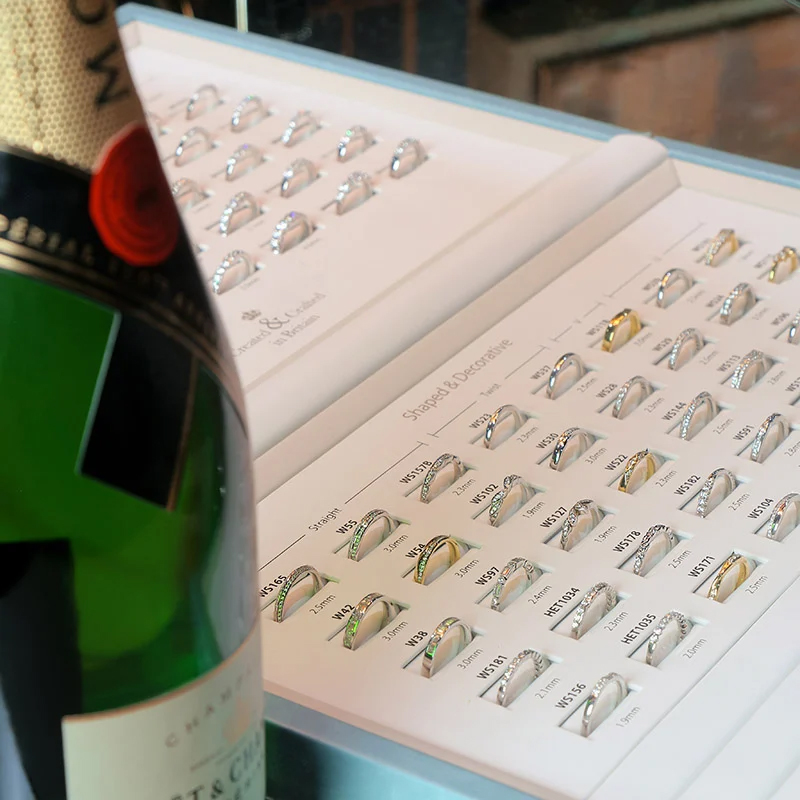
Book a consultation
Please select a location you'd like to make an appointment.














